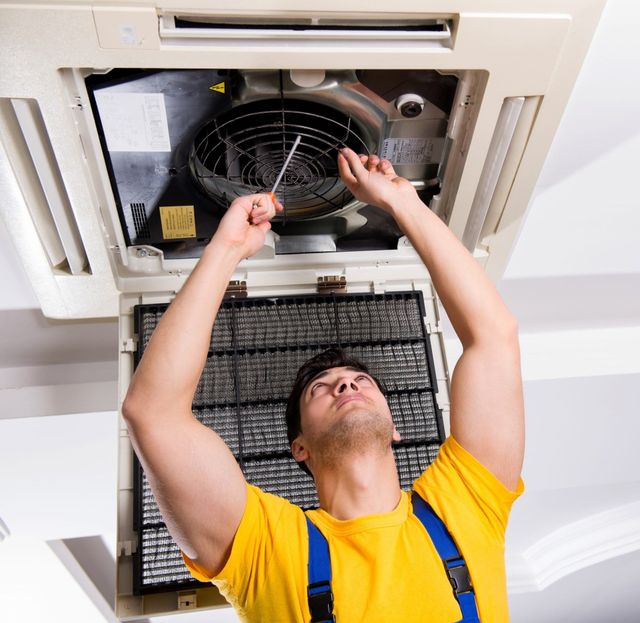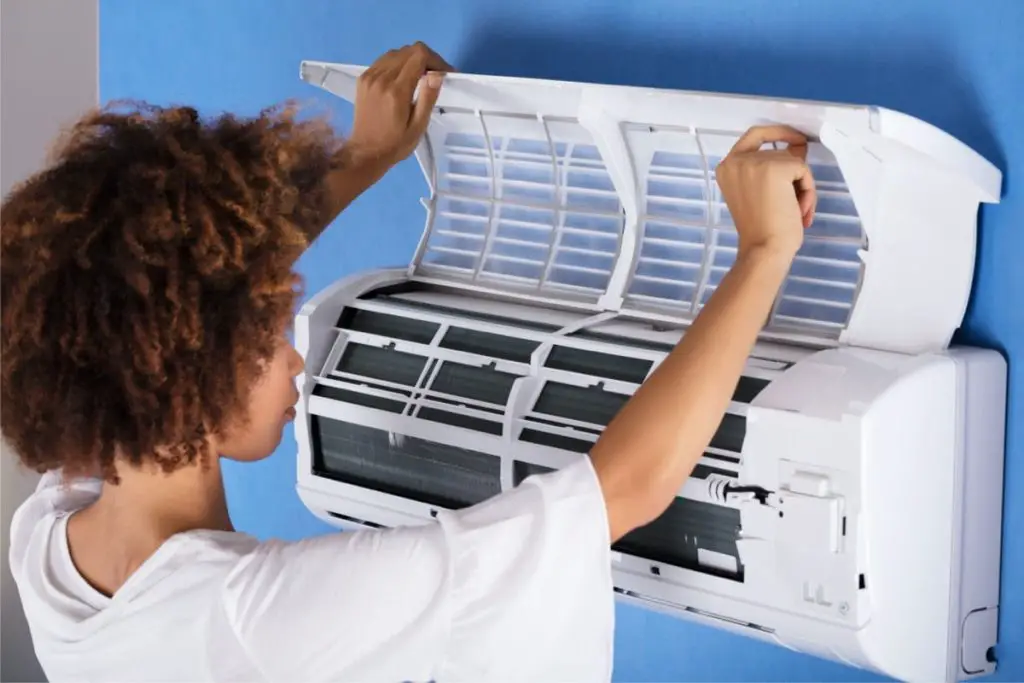It’s a scorching hot day, and you’re depending on your air conditioner to keep you cool and comfortable. But when you go to turn it on, nothing happens. Your HVAC air conditioner is not working, and you’re left sweating and frustrated. Don’t worry – we’ve got you covered! In this guide, we’ll walk you through the troubleshooting steps to identify and fix the issues with your air conditioner.
Common Issues with HVAC Air Conditioner
Before diving into the troubleshooting, let’s familiarize ourselves with some common issues that can cause an HVAC air conditioner to stop working:
| Issue | Cause |
|---|---|
| No power to the unit | Tripped circuit breaker or blown fuse |
| Insufficient cooling | Dirty air filters, low refrigerant levels, or blocked condenser unit |
| Weird noises or vibrations | Loose or damaged parts, worn-out bearings, or debris in the unit |
| Unit not turning on | Thermostat issues, faulty wiring, or capacitor problems |
Troubleshooting Your HVAC Air Conditioner
Now that we know the potential issues, let’s start troubleshooting your HVAC air conditioner step by step:
Step 1: Check The Power Supply
Ensure that the air conditioner is receiving power. Check the circuit breaker and the fuse box. If the circuit breaker has tripped or the fuse has blown, reset the breaker or replace the fuse. If the problem persists, consult a professional electrician.
Step 2: Clean Or Replace Air Filters
Dirty air filters can restrict airflow and reduce the cooling efficiency of your air conditioner. Turn off the unit and check the filters. If they are dirty, clean or replace them according to the manufacturer’s instructions.
Step 3: Inspect The Condenser Unit
The condenser unit, located outside, can become blocked by debris such as leaves, dirt, or grass clippings. Clear any obstructions around the unit and ensure that it has enough clearance for proper airflow.
Step 4: Check The Thermostat Settings
Make sure the thermostat is set to “cool” and the temperature setting is lower than the current room temperature. If the thermostat is not working properly, consider replacing it with a new one.
Step 5: Examine The Capacitor
The capacitor helps start the compressor and the fan motors. If the capacitor is faulty, the unit may not turn on. Inspect the capacitor for any bulging or leaking, and if you notice any signs of damage, replace it immediately.

Credit: www.icsny.com
Fixing Common Issues with HVAC Air Conditioner
After identifying the root cause of the problem, here’s how you can fix some common issues with your HVAC air conditioner:
Issue: Insufficient Cooling
If your air conditioner is not providing enough cooling, it could be due to low refrigerant levels. Contact a professional HVAC technician to inspect the refrigerant levels and recharge the system if necessary. Additionally, keeping the condenser unit clean and unobstructed can improve airflow and cooling efficiency.
Issue: Weird Noises Or Vibrations
Unusual noises or vibrations from the air conditioner could indicate loose or worn-out parts. Inspect the unit for loose screws or connections, worn-out bearings, or debris that may be causing the vibrations. Tighten any loose components and remove any debris to eliminate the noises and vibrations.
Issue: Unit Not Turning On
If your air conditioner is still not turning on after troubleshooting, the problem may lie in the wiring or the capacitor. Contact an HVAC technician to inspect the wiring for any faults and replace the capacitor if necessary.
When to Call a Professional
While some HVAC issues can be resolved through DIY troubleshooting and fixes, there are instances where it’s best to seek professional help. Consider contacting a certified HVAC technician in the following situations:
- The air conditioner continues to malfunction after DIY attempts to fix it.
- You suspect the problem involves complex electrical components or refrigerant handling.
- Your air conditioner is still under warranty, and you want to avoid voiding the warranty by attempting repairs yourself.
Regular Maintenance for Your HVAC Air Conditioner
Preventing HVAC issues is always better than dealing with breakdowns. To keep your air conditioner running smoothly, consider scheduling regular maintenance with a professional HVAC technician. Regular maintenance can include tasks such as:
- Checking and replacing air filters
- Inspecting and cleaning the condenser unit and evaporator coils
- Testing the thermostat and calibrating it if necessary
- Checking refrigerant levels and recharging the system as needed
Conclusion
Your HVAC air conditioner not working can be a significant inconvenience, especially during the hot summer months. By following the troubleshooting steps outlined in this guide, you can identify and resolve common issues that may be causing your air conditioner to malfunction. Remember, safety is paramount, and when in doubt, don’t hesitate to seek professional assistance to ensure the proper functioning of your HVAC system.

